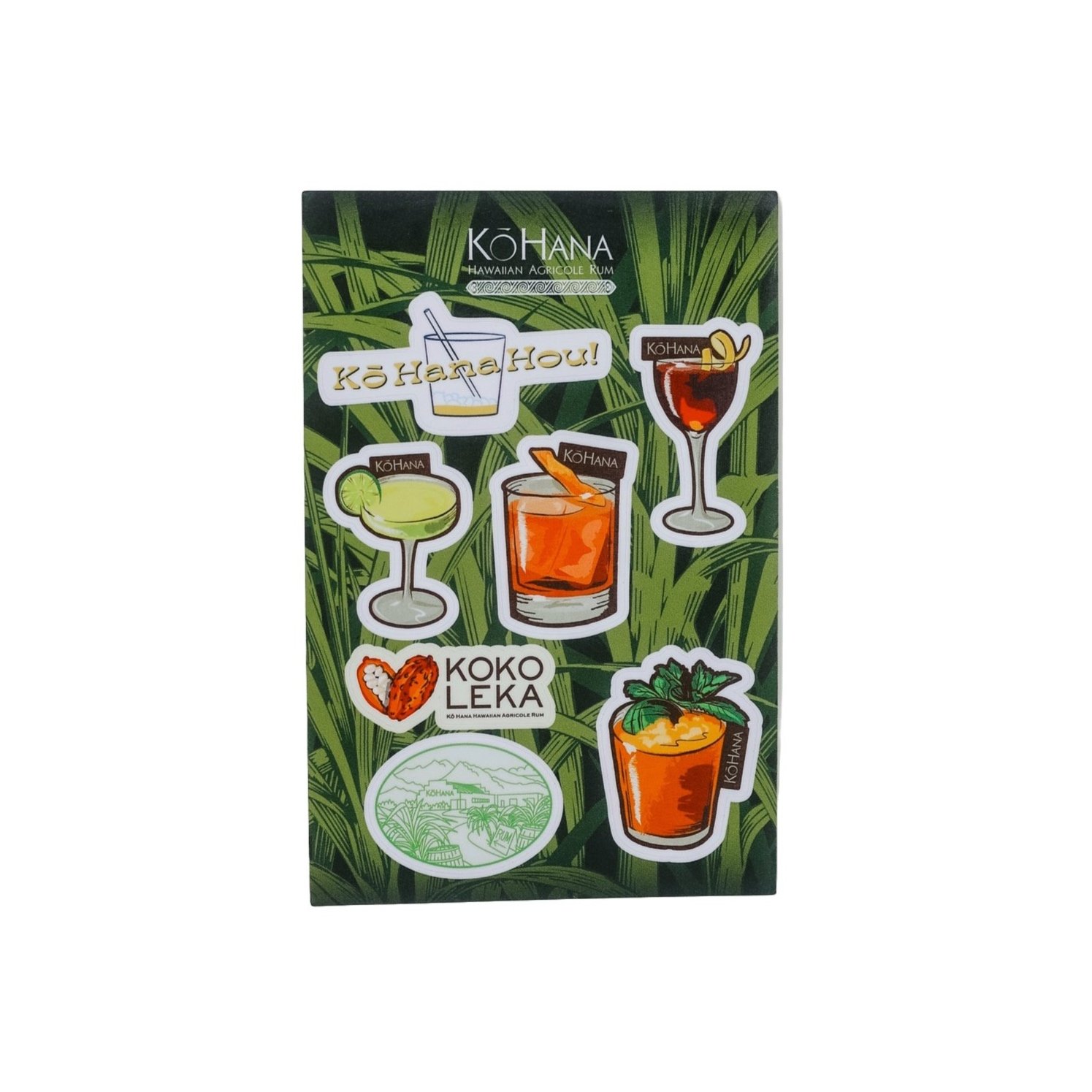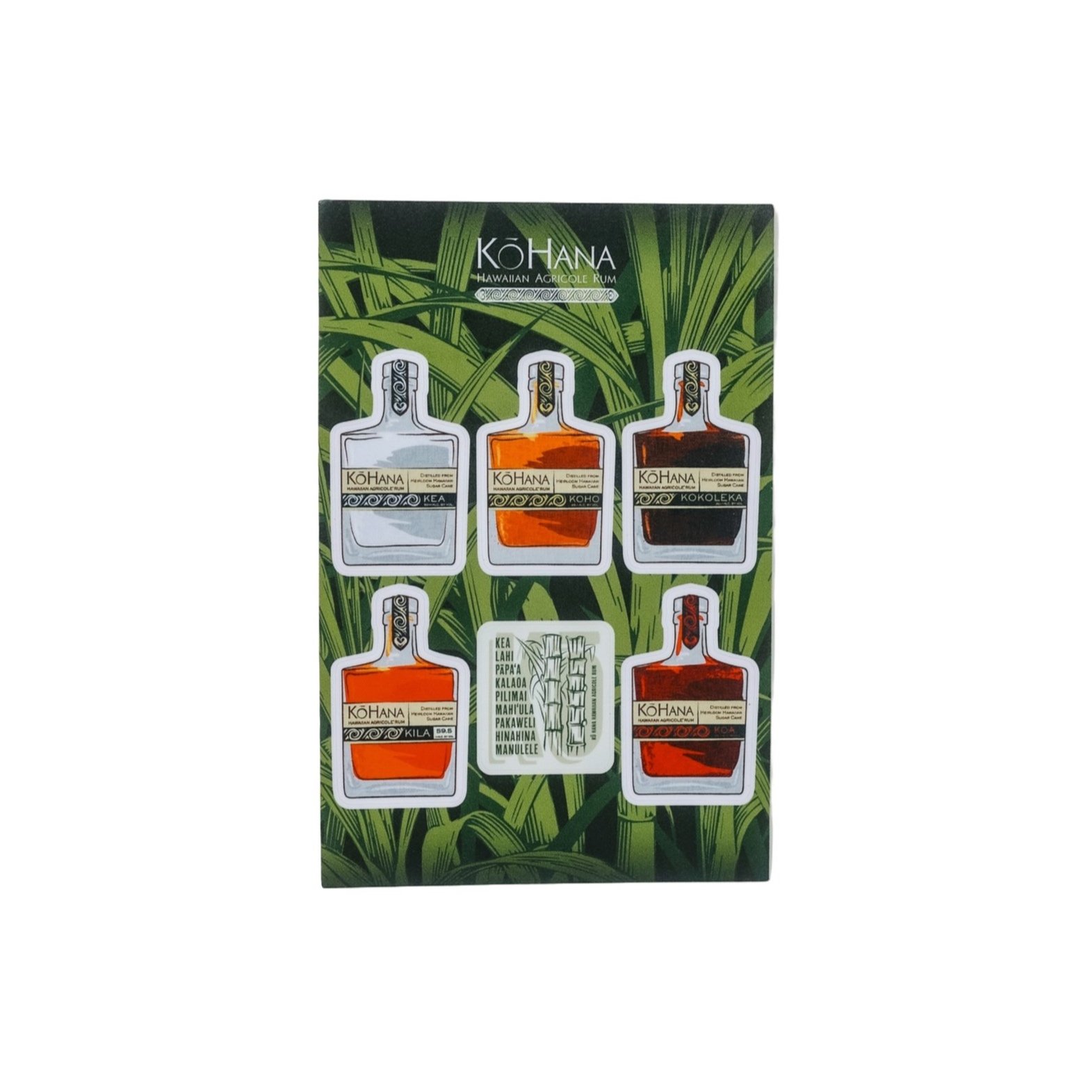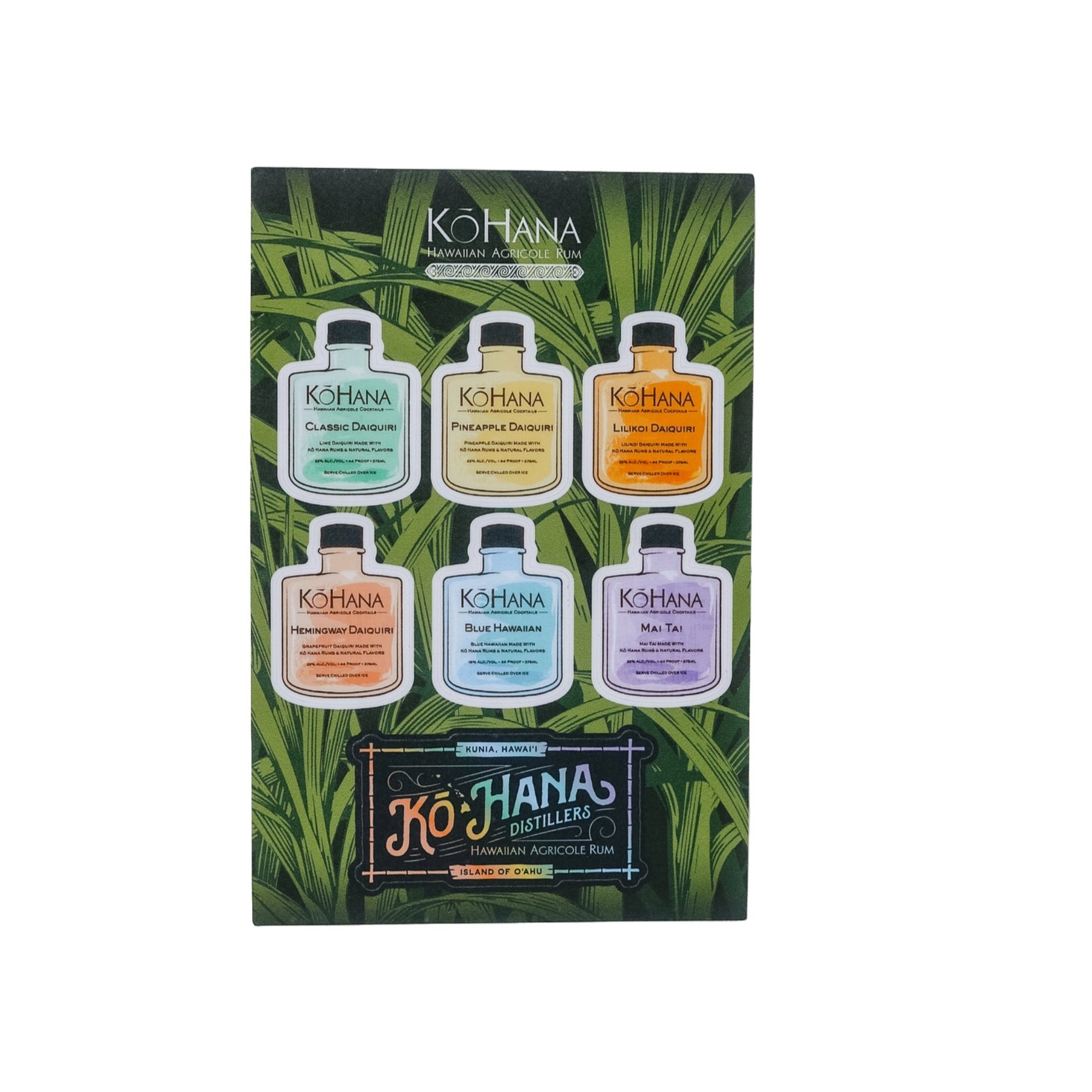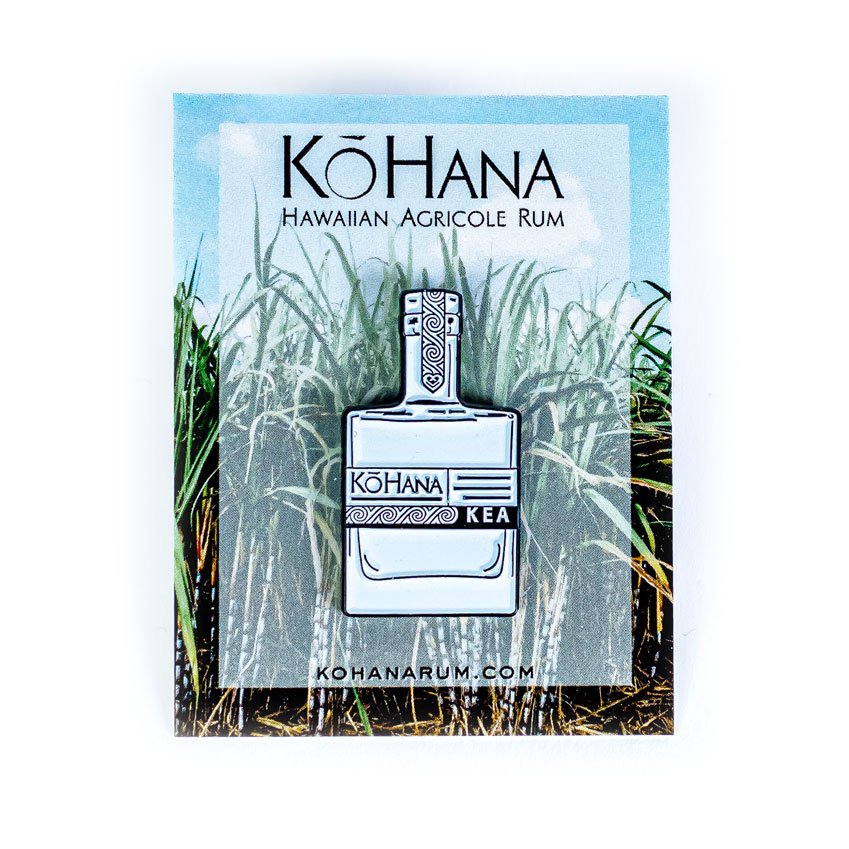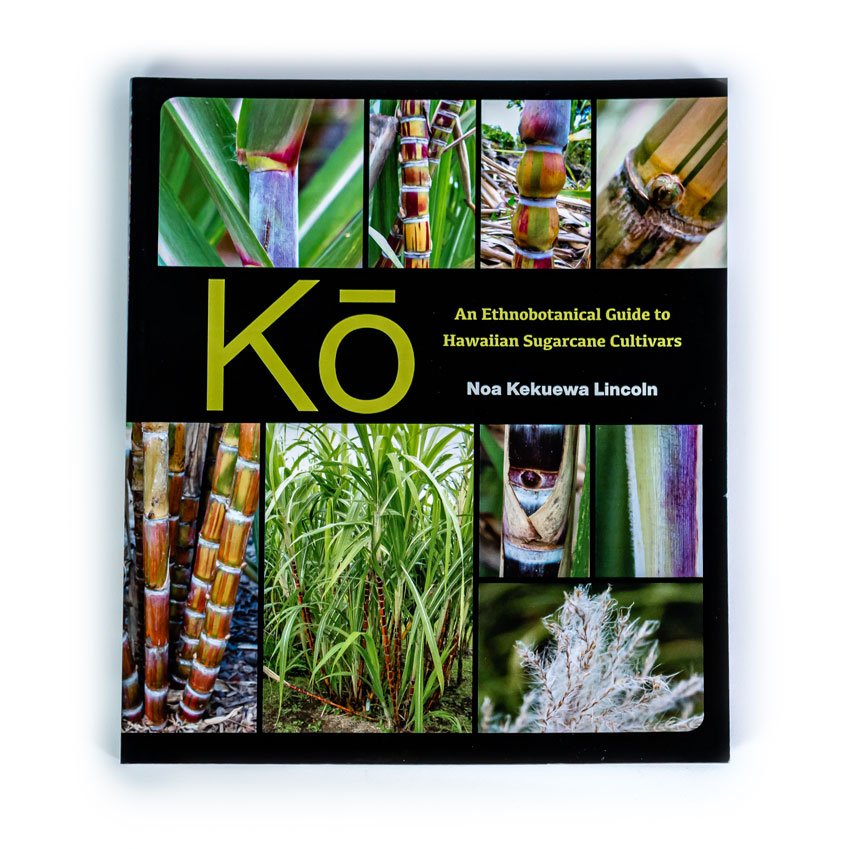 Image 1 of 1
Image 1 of 1


Kō Book
KŌ: AN ETHNOBOTANICAL GUIDE TO HAWAIIAN SUGARCANE CULTIVARS - By Dr. Noa Kekuewa Lincoln
The enormous impact of sugarcane plantations in Hawai‘i has overshadowed the fact that Native Hawaiians introduced sugarcane to the islands nearly a millennium before Europeans arrived. In fact, Hawaiians cultivated sugarcane extensively in a broad range of ecosystems using diverse agricultural systems and developed dozens of native varieties of kō (Hawaiian sugarcane). Sugarcane played a vital role in the culture and livelihood of Native Hawaiians, as it did for many other Indigenous peoples across the Pacific.
This long-awaited volume presents an overview of more than one hundred varieties of native and heirloom kō as well as detailed varietal descriptions of cultivars that are held in collections today. The culmination of a decade of Noa Lincoln’s fieldwork and historical research, Kō: An Ethnobotanical Guide to Hawaiian Sugarcane Cultivars includes information on all known native canes developed by Hawaiian agriculturalists before European contact, canes introduced to Hawai‘i from elsewhere in the Pacific, and a handful of early commercial hybrids. Generously illustrated with over 370 color photographs, the book includes the ethnobotany of kō in Hawaiian culture, outlining its uses for food, medicine, cultural practices, and ways of knowing.
In light of growing environmental and social issues associated with conventional agriculture, many people are acknowledging the multiple benefits derived from traditional, sustainable farming. Knowledge of heirloom plants, such as kō, is necessary in the development of new crops that can thrive in diversified, place-specific agricultural systems. This essential guide provides common ground for discussion and a foundation upon which to build collective knowledge of indigenous Hawaiian sugarcane.
KŌ: AN ETHNOBOTANICAL GUIDE TO HAWAIIAN SUGARCANE CULTIVARS - By Dr. Noa Kekuewa Lincoln
The enormous impact of sugarcane plantations in Hawai‘i has overshadowed the fact that Native Hawaiians introduced sugarcane to the islands nearly a millennium before Europeans arrived. In fact, Hawaiians cultivated sugarcane extensively in a broad range of ecosystems using diverse agricultural systems and developed dozens of native varieties of kō (Hawaiian sugarcane). Sugarcane played a vital role in the culture and livelihood of Native Hawaiians, as it did for many other Indigenous peoples across the Pacific.
This long-awaited volume presents an overview of more than one hundred varieties of native and heirloom kō as well as detailed varietal descriptions of cultivars that are held in collections today. The culmination of a decade of Noa Lincoln’s fieldwork and historical research, Kō: An Ethnobotanical Guide to Hawaiian Sugarcane Cultivars includes information on all known native canes developed by Hawaiian agriculturalists before European contact, canes introduced to Hawai‘i from elsewhere in the Pacific, and a handful of early commercial hybrids. Generously illustrated with over 370 color photographs, the book includes the ethnobotany of kō in Hawaiian culture, outlining its uses for food, medicine, cultural practices, and ways of knowing.
In light of growing environmental and social issues associated with conventional agriculture, many people are acknowledging the multiple benefits derived from traditional, sustainable farming. Knowledge of heirloom plants, such as kō, is necessary in the development of new crops that can thrive in diversified, place-specific agricultural systems. This essential guide provides common ground for discussion and a foundation upon which to build collective knowledge of indigenous Hawaiian sugarcane.




